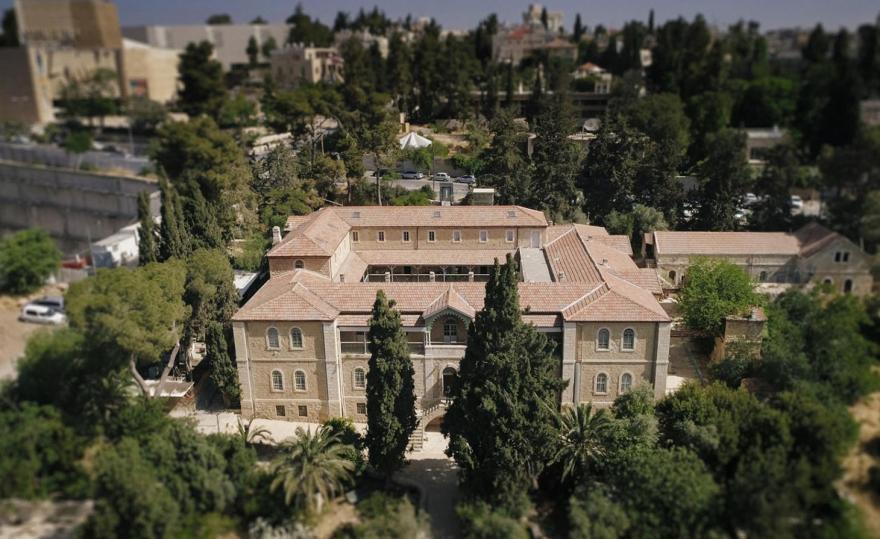查看完整案例


收藏

下载
The sixth edition of Jerusalem Design Week tackled the topic, ‘Islands: an inward exploration of design as a bridge between social, political and cultural boundaries’. Photography: Dor Kedmi
以色列是一个有着鲜明对比的国家。虽然108年历史悠久的特拉维夫城市一直展望未来,以其自由的文化和海滨的位置吸引有创造力的居民,但古老的耶路撒冷却牢牢地扎根于过去。
因此,六年前,当耶路撒冷发展局和耶路撒冷遗产部决定赞助一个设计周时,这座城市获得了一个独特的机会。耶路撒冷设计周的董事总经理兰-沃尔夫说:“我们想向这座城市展示另一面,尽可能多的人来体验耶路撒冷。”与大众信仰相比,耶路撒冷在设计和创意方面是一个领先城市。耶路撒冷到处都是年轻人和有创造力的人。
今天,人们对耶路撒冷的看法正在改变。这座城市作为科技初创企业、手工艺啤酒、精品酒店和活跃的夜生活场景的中心,正在赢得声誉,将其多样化的市民团结在一起。由著名的设计学院贝扎勒艺术与设计学院(Bezalel Academy Of Arts And Design)支持的新兴设计场景无疑是小而坚定的。在这个城市的Talbiya区,一个由9名当地设计师组成的名为“耶路撒冷设计集体”(耶路撒冷设计集体)的团队在一系列工作室工作,这表明年轻设计师越来越多地找到了留下来的理由。
当地的工作室石窟,灵感来自地毯设计,创造了一个互动的,网格状的壁画,由144个记事本制成。我们鼓励参观者将30000页记事本中的一页撕掉,以展示下面的新设计。
在耶路撒冷做设计师是一种说法。它是关于与众不同和不同的想法,“设计师丹尼尔·纳米亚斯(DanielNahmias)说,他是集体的创始人。耶路撒冷是一个多元文化的国际化城市。虽然多元文化在耶路撒冷过去一直是一个不利因素,但它已成为一个明显的优势。在未来的几年里,你将能够看到更多的设计中心,更多的创新和创新平台。这座城市比其他城市投入更多的资源在设计和艺术社区,并明白创意阶层是城市发展的动力和关键。
这座城市不断增长的设计周正在帮助培育这个新兴的网络。今年参与设计的150名设计师分布在这个城市富裕的Talbiya社区的四个场馆里,他们讨论的主题是“岛屿:作为社会、政治和文化边界之间桥梁的设计的内在探索”。这一主题不仅是对以色列边界冲突的评论,也是对更广泛的国际政治事件的评论。
设计周的两位策展人塔尔·埃雷兹(Tal Erez)和阿纳特·萨夫兰(Anat Safran)解释说,随着英国退欧、特朗普的墙和互联网的超级门户,世界似乎正在进入想象中的舒适地带。面对这些变化,设计师们拥有巨大的力量:从创造替代世界的潜力到身份的重建。
At the Musueum of Natural History, product designs by recent graduates of Jerusalem’s Bezalel Academy of Arts and Design were blended in with the museum’s displays in an attempt to create a ‘visual-conceptual conversation between the two’. Photography: Dor Kedmi
At Hansen House – a former leprosarium that is now a bustling centre for design, media and technology – a series of installations celebrated the late curator Yizchak Gaon, each inspired by one of his legendary exhibitions. Photography: Yonatan Strier
‘Revolve’ vessels, by Talia Mukmel, on view the Museum of Islamic Art. Photography: Ayber Gallery
Netherlands-based designer Maurizio Montalti teamed up with Israeli designer Rami Tareef on a wall built from mycelium (or mushroom) brick. As the funghi grow and intertwine, the wall is in a constant state of flux – a reflection on the borders of Jerusalem. The limestone floor tiles engraved with Arabic and Hebrew letters signal that language could be a bridge rather than being a barrier between people. © Maurizio Montalti and Rami Tareef
A series of satellite images from Instagram account The Jefferson Grid were displayed across the length of one of the telephone exchange’s walls. Conceived in the 18th century, the grid is still one of the prominent landscape features of America’s mid-west and west coast as revealed by the photographs
‘We Ferment’ ceramic vessels, by Rotem Gruber
Across the city, the Jerusalem Design Collective worked with a series of local businesses on the city’s Azza Street to create design interventions within their premises. Pictured, a barbershop designed by Noa Razer Shanit Adam and Shani Avivi. Photography: Dor Kedmi
The International Teams programme paired global design talent with local manufacturers, resulting in an array of intriguing works. Omer Polak created a snail-shaped carpet in collaboration with a local dye workshop – the only one in the world that creates an azure dye made from the Hexaplex trunculus snails, a species that is only found on the islands of Israel. Photography: Dor Kedmi
Israeli ceramic artist Jonathan Hope and Danish information designer Peter Ørntoft created an ethereal scale model of an enormous 350m-deep crack that has formed in the Larsen C ice shelf in Antarctica. Photography: Dor Kedmi
The exhibition ‘Repositioning’, curated by Alon Razgour at the Museum of Islamic Art, saw 12 artists create new artworks (including Koby Sibony, pictured) inspired by one particular piece from the museum’s collection
Students, graduates and teachers at Bezalel’s MDES programme in industrial design presented their take on autarky – an ideal economic unit that supplies all of its own needs without relying on outside sources. Pictured, a vessel from Ariel Lavian’s ‘My garden – Spring’ series made using materials sourced entirely from his studio’s garden
'Opposite', an interactive Lego house was designed by local studio Magenta, who exhibited at Hansen House, Center for Design, Media and Technology. Photography: Lee Zakai
Inside the interactive Lego installation, 'Opposite'. Photography: Dor Kedmi
In the Hansen House’s courtyard, Dutch collective We Make Carpets installed a carpet comprising 12,000 pencils. Photography: Dor Kedmi
The ‘Fashion Island’ show saw local design studio the Muslin Brothers create 100 lightweight coats from organza and lightweight plastics. Based upon the original US army coat that was used during the Vietnam War, the garments were hung from poles mounted in sand. Drenched in an obscure yellow light, visitors were invited to try the coats on as they walked through the surreal desert-like space. Photography: Dor Kedmi
At the former Bezeq telephone exchange, the ‘Graphic Island’ show directed by Guy Saggee and Michal Sahar functioned as a temporary news desk where designers, reporters, photographers, writers and illustrators gathered each day to produce a daily publication. Produced on a traditional printing press, the results were used to create a mural that documented the week. Photography: Dor Kedmi
At the ‘Product Island’ exhibition, Itay Ohaly challenged designers to make functional off-the-cuff products using only the limited materials available in the room. Photography: Dor Kedmi
The Department of Inclusive Industrial Design at Hadassah Academic College exhibited a series of sculptural wooden objects inspired by wood processing techniques from three ‘cultural islands’: Japan, Africa and the US. The results demonstrate the cultural religious, philosophic and design aspects of each location
keywords:Global Fair Guide 2017
关键词:全球博览会指南2017
客服
消息
收藏
下载
最近























